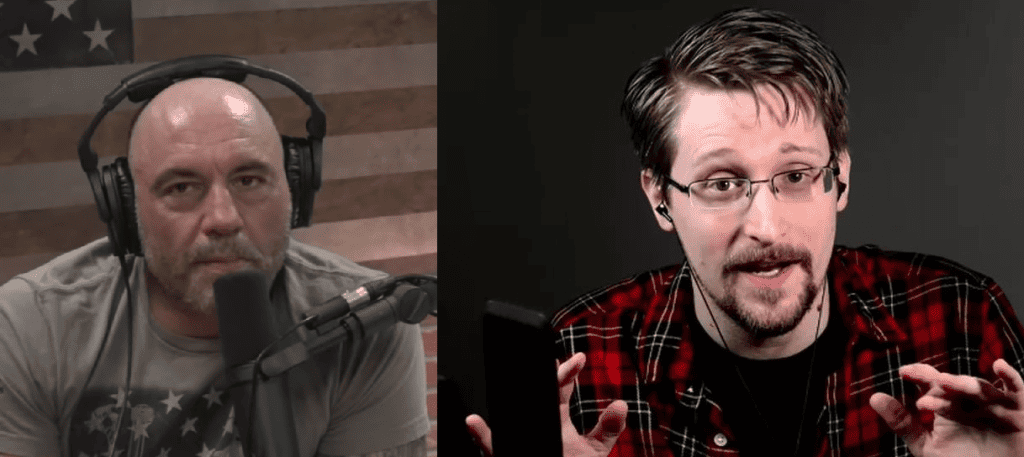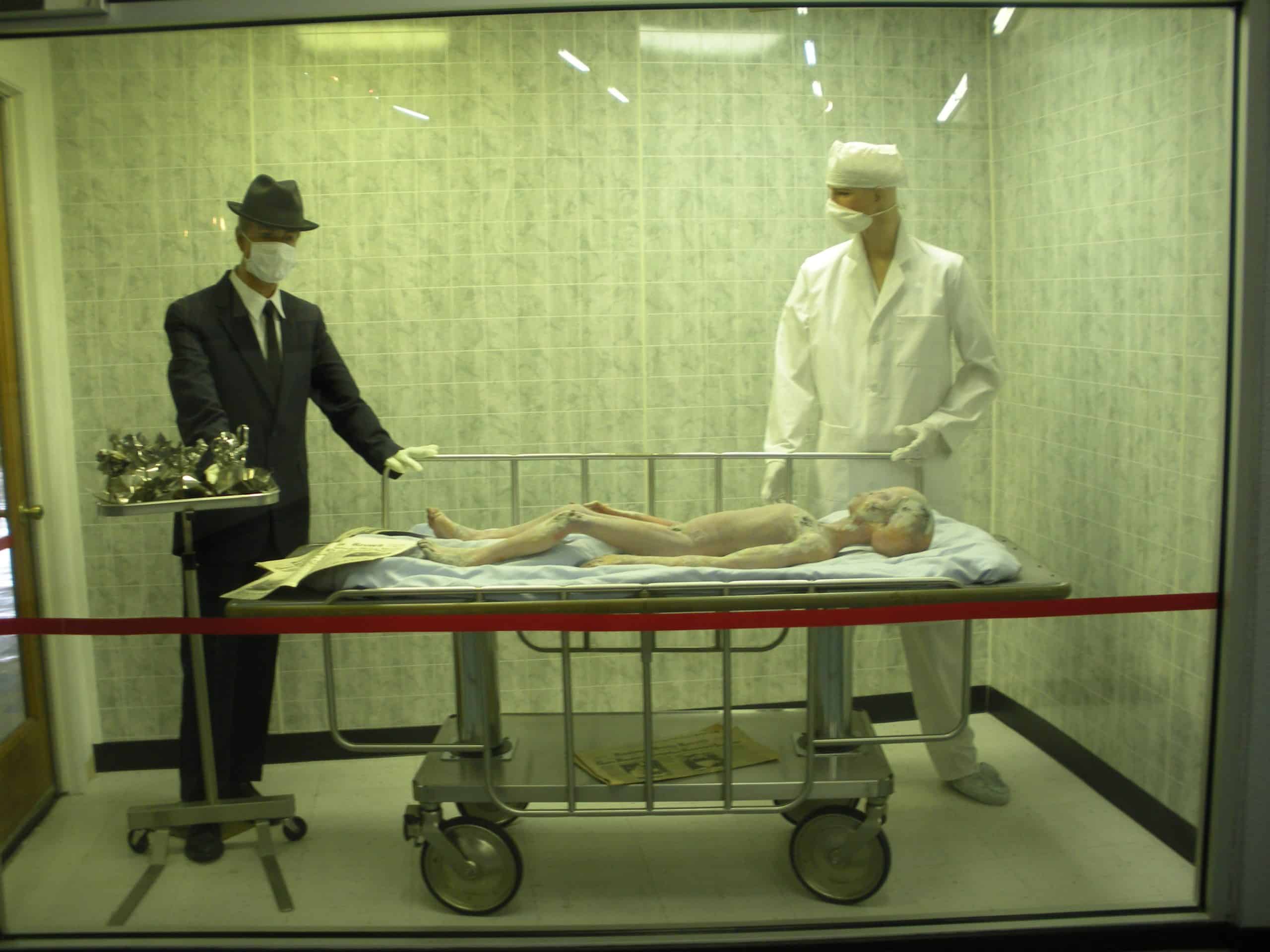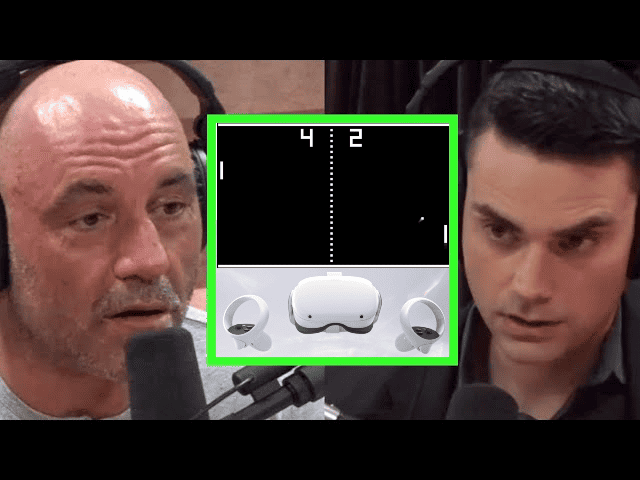Contents
- 1 Joe Rogan hosted legendary whistleblower Edward Snowden on his podcast, and the former intelligence worker delved deep into mass surveillance.
- 2 Edward Snowden Brings Government Surveillance to Light
- 3 The Former CIA Worker Shares Privacy Tips & Tricks
- 4 Edward Snowden Fights for Consumer Rights
- 5 The Call to Go Against Invasive Corporations
Joe Rogan hosted legendary whistleblower Edward Snowden on his podcast, and the former intelligence worker delved deep into mass surveillance.
In a still painfully relevant 2019 Joe Rogan Experience episode, Edward Snowden opens up on surveillance states.
Joe Rogan opens the clip, asking if Snowden is aware of any changes in tracking tactics since he brought government surveillance into the spotlight in 2013. The first change Snowden points out is the domination of smartphones over laptops.
Snowden slams both Apple and Samsung devices for being poor with privacy. He gets into the details, sharing how even a turned off phone is constantly connected to the nearest cellular tower, giving away its location for any incoming calls.
He explains that things like the credit card you use to purchase your phone can reveal your identity. It’s easily linked to your address along with other locations you visit, such as your workplace.
Not falling into unnecessary fear-mongering, Snowden points out that there’s no reason for this information to be stored indefinitely. But he points out how your location is tracked and your data is harvested by companies aiming to make money.
Edward Snowden Brings Government Surveillance to Light
He slams the government for “bulk collection”, believing the term to be a nicer phrase for “mass surveillance.”
Snowden then brings apps into the conversation, explaining that these connect to cellular towers even more frequently than your phone’s standard software. He mentions Wi-Fi Access Points and how they achieve the same sort of tracking as cellular towers.
Edward Snowden also raises the issue of Google Street View cars and how they harvest the information of what Wi-Fi Access Points are in a location and who’s connected.
Joe Rogan asks if there’s anything that can be done to lessen an individual’s digital footprint. His first thought is to turn his phone off, and he wonders whether that’s of any use. Snowden claims it is, but only if you’re sure your phone is turned completely off, sending viewers towards the question: how can you really tell?

Edward Snowden shares an anecdote about using “drug dealer phones” while working for the CIA. The reason the workers used outdated models was the capability of removing the battery, leading them to trust that the phone was completely shut off.
In a surprising twist, Snowden reveals that he doesn’t worry about this kind of thing. He’s cautious in his actions, but he figures if they’re going to such an effort for this information, they most likely harvest it in alternative ways too.
Edward Snowden believes we need to be realistic, and look at the most likely compromises rather than “voodoo hacks”. He turns listeners away from unfounded fears, returning his focus back towards bulk collection.
Edward Snowden Fights for Consumer Rights
Snowden identifies the problem as how we don’t know what our phones are doing, and believes the knowledge needs to be open and in the people’s hands. It’s something that’s only occurred due to his exposé of the USA’s National Security Agency.
Edward Snowden slams the industry that profits off of keeping this invisible for an “inequality of available information.” He views the consumer as buying a phone, but the government and companies maintain control over its functions.
Snowden attacks consumer agreements, saying the terms and conditions aren’t why people agree to have their data harvested. He points out that even if people fully agreed to the conditions, there’s often a clause in them stating the rules can be changed at anytime.
Edward Snowden brings data harvesting back to its origin, telling a story of cops using a license plate and phone records to track down a criminal. In court, the criminal’s lawyer argued that the information was received without a warrant.
The legal system established that the records were the companies, not the individual’s. This 1970 story is echoed in our daily lives.
The Call to Go Against Invasive Corporations
He ends with a heavy quote from friend John Berry Parlow, saying, “you can’t awaken someone who’s pretending to be asleep.” It’s a call to action in our modern surveillance state, urging viewers to see the disconnect between company and consumer.



One thought on “Edward Snowden Warns Against Surveillance States on Joe Rogan Experience”